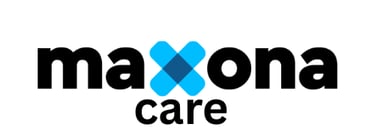Emergency Preparedness for Seniors: Home Care Plans
Be ready for anything. Use Maxona Care’s emergency preparedness guide for Iowa seniors, covering evacuation plans, medical info & caregiver contacts.
Dr. Aishat O. MPH
7/15/20253 min read


Weather extremes, power outages, or medical emergencies can strike without warning—yet seniors and individuals with chronic conditions face heightened risks during such crises. A well-crafted emergency preparedness plan, integrated with in-home care services, empowers you and your loved one to respond swiftly and safely. Below, we outline key steps to develop a comprehensive home care emergency plan tailored for seniors in Iowa’s Cedar Valley.
1. Conduct a Personal Risk Assessment
Every home and individual has unique vulnerabilities. Begin by evaluating:
Medical Needs: List chronic conditions, medications (dosages and schedules), mobility aids, and any special dietary requirements.
Environmental Risks: Identify local hazards—tornado season in spring, ice storms in winter, flash flooding near the Cedar River.
Support Network: Catalog neighbors, family members, and care professionals who can assist during an emergency.
Use this information to prioritize preparation efforts and allocate resources where they’re needed most.
2. Assemble an Emergency “Go” Bag**
Keep a grab-and-go kit within easy reach—ideally near the front door or in a central hallway. Include:
Essential Documents (in a waterproof pouch):
Photo ID, insurance cards, and a copy of the in-home care service agreement
List of medications with dosages and prescribing physician contact
Emergency contacts: family, Care Coordinator, primary physician, local AAA office
Medical Supplies:
A 3-day supply of non-perishable, easy-open over-the-counter medications (pain relievers, antacids)
Copies of prescriptions for refills if pharmacies are closed
Basic first-aid kit: bandages, antiseptic wipes, gauze, tape, gloves
Mobility & Assistive Aids:
Travel-size cane or walker attachments (if foldable)
Extra batteries for hearing aids or mobility devices
Backup pair of prescription glasses
Nutrition & Hydration:
Bottled water (one gallon per person per day for at least three days)
Ready-to-eat protein snacks: shelf-stable milk, granola bars, canned tuna with pull tabs
Manual can opener
Communication Tools:
Battery-powered or hand-crank radio with extra batteries
Prepaid mobile phone or charged power bank for cell phones
Whistle or personal alarm to signal for help
Comfort Items:
Warm blanket or emergency “space” blanket
Change of weather-appropriate clothing and sturdy shoes
Flashlight and headlamp
3. Develop a Home Evacuation & Shelter Plan
Evacuation Routes
Multiple Exits: Identify at least two safe exit paths from each room.
Safe Zone Map: Post a simple floor plan near every exit, indicating safe meeting points outside (e.g., mailbox, neighbor’s porch).
In-Home Shelter Strategies
For tornadoes, designate an interior room or small basement area away from windows.
For extreme heat or cold, plan to relocate to the most climate-controlled area of the house (e.g., lowest floor in summer, highest floor in winter) and stock extra blankets or fans.
Transportation Arrangements
Coordinate with your in-home care agency (like Maxona Care) to confirm caregiver availability to assist with evacuation.
Enroll in local “Medical Return Transportation” programs through Northeast Iowa AAA if family can’t transport you.
4. Establish a Communication & Check-In Protocol
Reliable communication is the backbone of any emergency plan:
Daily Check-In Times: Schedule twice-daily calls or text check-ins with a designated family member or Care Coordinator to confirm status.
Emergency Contact List: Keep laminated copies near phones and in the “Go” bag, including:
Maxona Care 24/7 support line
Local fire, police, and medical emergency numbers
Nearby neighbor or building manager who can perform welfare checks
Backup Communication: If cell service fails, agree on a meeting point or use the battery-powered radio for weather alerts and instructions.
5. Coordinate with Your Home Care Agency
A proactive partnership with in-home care providers ensures continuity of support:
Share Your Plan: Provide your Care Coordinator with copies of evacuation routes, medical needs, and “Go” bag contents.
Confirm Roles & Backups: Outline exactly how caregivers will assist—such as transferring to a chair, managing medications on schedule, or calling emergency services if you’re unable. Ensure the agency has backup staff available for extended outages.
Emergency Drills: Practice a quarterly drill—walking through exit routes, packing the “Go” bag, and performing a mock check-in. Caregivers and family members should participate to refine timing and identify gaps.
6. Stockpile for Extended Outages
Power or utility failures can last days after severe storms. Maintain a home cache of:
Non-Perishable Foods: A two-week supply of canned or dried goods. Rotate stock every 6–12 months.
Water Storage: Extra 5-gallon jugs or a household water filter system.
Alternative Power: A small, safe generator for medical equipment or refrigerated medications—operated by a trained caregiver or family member.
7. Post-Emergency Recovery & Support
After the immediate threat passes:
Damage Assessment: With caregivers’ assistance, check for structural damage, water leaks, or electrical hazards before re-entering or resuming full services.
Wellness Check: Ensure all medications were taken as prescribed. Update your Care Coordinator on any missed doses or new symptoms.
Community Resources: Contact NEI3A or local emergency management offices for recovery assistance—temporary housing, meal sites, or financial aid.
Building Resilience, One Plan at a Time
Emergencies test even the best-laid plans—but seniors with a robust home care preparedness strategy face them with greater confidence and security. By combining a detailed risk assessment, an accessible emergency kit, clear evacuation routes, reliable communication channels, and close coordination with professional caregivers, you create a safety net that protects health and dignity.
Need help crafting your personalized emergency care plan?
Contact Maxona Care at (470) 756-1751 or visit www.maxonacare.com to schedule a free, no-obligation home safety and emergency preparedness consultation. Let us partner with you to ensure you and your loved one are ready—for whatever tomorrow brings.
Quality home care services for daily living support.
Support
SUBSCRIBE
admin@maxonacare.com
470-756-1751
©2025 Maxona Care LLC All rights reserved.


